Film Update: The Last Out
POV caught up with The Last Out directors Sami Khan (SK) and Michael Gassert (MG) and producer/cinematographer Jonathan Miller (JM) to provide a window into the making of their film and reflect on the journey since the cameras stopped rolling. The following are their words, lightly edited, for clarity and context.
How did you first get involved with the project? When did you know this story was going to be a documentary?
JM: Sami sent me a pitch for a very different documentary about the underground market for Cuban baseball players and how they got to the United States, asking if I was interested in photographing it and partnering on the fledgling project. It was a fascinating world and an exciting idea. I was looking for something meatier in the documentary realm and had shot other work in Cuba and loved being there. We began shooting exploratory interviews and in the process found our way to Gus Dominguez who invited us down to Costa Rica to meet his current group of players. Mike joined the project, and we went down to Costa Rica. Once we began shooting with Happy, Carlos, and Baró, we realized we had a living story about all the issues we were interested in that was happening in the present. We committed to follow it. That commitment was tested over the years with wild turns and choices to be made, but we held on, stayed close to our guys, and finished the film.
What were some of the biggest surprises and challenges you encountered during the filmmaking process?
MG: The challenges throughout all stages of the filmmaking process to arrive at this point have been enormous. Through production, editing, and distribution, we’ve remained true to the idea of putting ourselves in the best position we can to succeed and focusing on what we can control. When making a vérité documentary, it’s essential to understand that much of the story passes beneath your feet. Those moments, while challenging, often inform us as to what’s really essential. Other times — like when Happy got cut — you’ve got to make a decision on the spot that alters the entire trajectory of the film. Similarly, in the edit, we worked for a year to flush out and distill the best version of the film we could that represents the truth of our participants through a wealth of stories.
After initially taking the film out, we saw that the film wasn’t getting the reception that we knew the story commanded. We made the hard but correct choice to pull back, take the film apart, and put it back together. When we landed our premiere at Tribeca 2020, we had no idea the way in which the world was about to change with the pandemic. We worked with capable agents to sell the film for almost two years, navigating the unprecedented bottleneck of films and consolidation of the streamers and conglomerates. Our persistence paid off once we were invited to be part of this year’s POV showcase. We didn’t imagine it would take eight years to get to this point, but we’re deeply satisfied to know this is the right home for our film.
What has happened with the participants since the film wrapped? If they’ve seen the film, what was their reaction?
MG: Happy was the first of our trio who made it to the U.S. He still lives in Houston and has been building his life steadily since arriving in Fall 2015. Happy has worked for a while in delivery services as well as a personal trainer. Most recently, he began his own business, running a food truck that serves lechón con pan, roasted pork with bread. He and his partner are expecting their first child by the end of this year. Happy is also actively working on bringing his family to the U.S. We enjoyed watching The Last Out with Happy, his friends and family in Houston for our theatrical premiere.
When crossing into the U.S. in early 2016, Carlos reunited with his sister in Miami where he based himself for several years working construction and driving Uber. A few years ago, he got married and now has a one-year-old son. He currently lives in Orlando and works in distribution for a major grocery chain. When he initially moved to the U.S., Carlos continued pursuing his baseball dream with a a new agent. However, as time passed and certain corrupt elements of the prospective recruitment industry seemed to repeat themselves, Carlos gave up baseball for good. Yet he still yearns to know if he had a chance back in 2015/2016. Carlos participated in a specialty screening for The Last Out in Orlando and, like Happy, seeks to bring his parents to the U.S.
Baró still lives in the Dominican Republic. After pitching in the Dominican Professional Baseball League with Los Torres, he was released due to an injury and fell on hard times. Of all our participants, the pandemic affected Baró the most. After a rough few years, Baró has been coaching for a prominent baseball academy in the Dominican Republic. Recently he ran into Charlie Gonzalez, the senior VP of international scouting for the Houston Astros who made a $300k verbal offer for him that never came to fruition. Charlie indicated he’d like to hire Baró but hasn’t yet made any efforts to do so. Baró has a young son in the Dominican Republic but still hasn’t seen his parents in almost eight years. He yearns desperately to leave the Dominican Republic and start his life anew in the U.S.
All three of our main participants have seen the film. While much of their documented experience includes shared and individual traumas, each of them is proud to have their stories immortalized in our documentary. If you ask them, they identify with the film as the truth of their lives. As filmmakers, that’s the most meaningful and rewarding response we could hope for.
What do you hope your audiences will take away after watching the film?
SK: Given the tremendous growth of exploitative nonfiction that occurred as we made The Last Out, we worked hard to make sure our process was informed by our participants’ humanity and carefully considered ethics and not by sensationalist storytelling or reductive tropes. Our film takes place over four years that were a pivotal moment for Cuban baseball and U.S.-Cuba relations. Despite the importance of baseball, geopolitics, and social issues, we wanted our film to be rooted in the perspective of our characters. Hoop Dreams was consequently a huge influence. We also collaborated openly with our participants, so discussions with our team and with other filmmakers on documentary ethics were an important evolution in the process of making The Last Out.
What are you working on now?
JM: I’m shooting a doc show for Disney+ now, developing a doc project about engineers solving climate change, and recently shot a couple narrative shorts, a doc short, and a series in development.
SK: A few of the projects I’m working on include a feature doc about legendary tennis player Vijay Amritraj, another doc about a Canadian sports broadcaster turned bank robber, and a digital series with ITVS about the best Indian restaurants in the United States. My latest short doc Angel Dose, produced with Xpedition Media, is playing festivals now.
MG: I’m currently three years into production on my next documentary feature in the Dominican Republic which shares a deep level of immersion, intimacy and commitment with The Last Out. The film is about a free, open air school of music in Santo Domingo’s Columbus Park which seeks not only to promote music literacy but also instill values within its participants. I’m exploring themes surrounding the equity of access to education and who is responsible for creating more opportunities for underserved populations to learn.
Final Thoughts?
SK: With the Major League Baseball playoffs in full swing and fans enjoying the heroics of Cuban stars like Yordan Álvarez, we feel like it’s an important time to highlight the cost of the game and the things that the authorities don’t want you to see — particularly the ongoing corruption in international free agent signings and the dangerous intersection with criminal elements and the migrant trail. We know of active federal investigations into this world, and we hope leaders in Congress use their leverage over the MLB to look into these issues to help stop the trafficking of athletes.
The Last Out is streaming until October 26th on pbs.org and the PBS Video app.
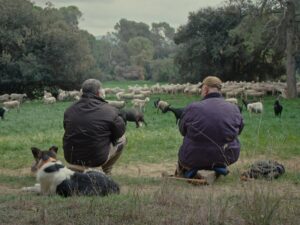 Film Review: Fauna
Film Review: Fauna 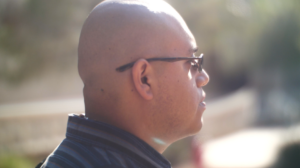 Film Update: unseen
Film Update: unseen 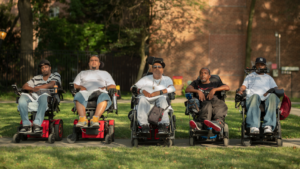 Film Update: Fire Through Dry Grass
Film Update: Fire Through Dry Grass 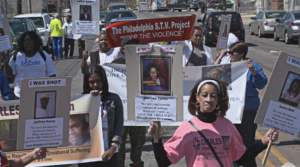 Film Update: Murders That Matter
Film Update: Murders That Matter 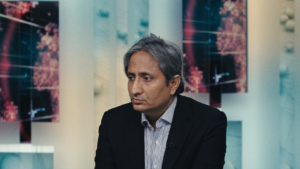 Film Update: While We Watched
Film Update: While We Watched 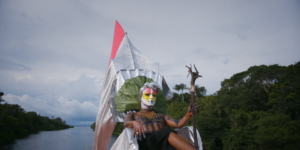 Film Update: Uýra: The Rising Forest
Film Update: Uýra: The Rising Forest 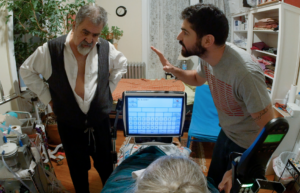 Film Update: Eat Your Catfish
Film Update: Eat Your Catfish